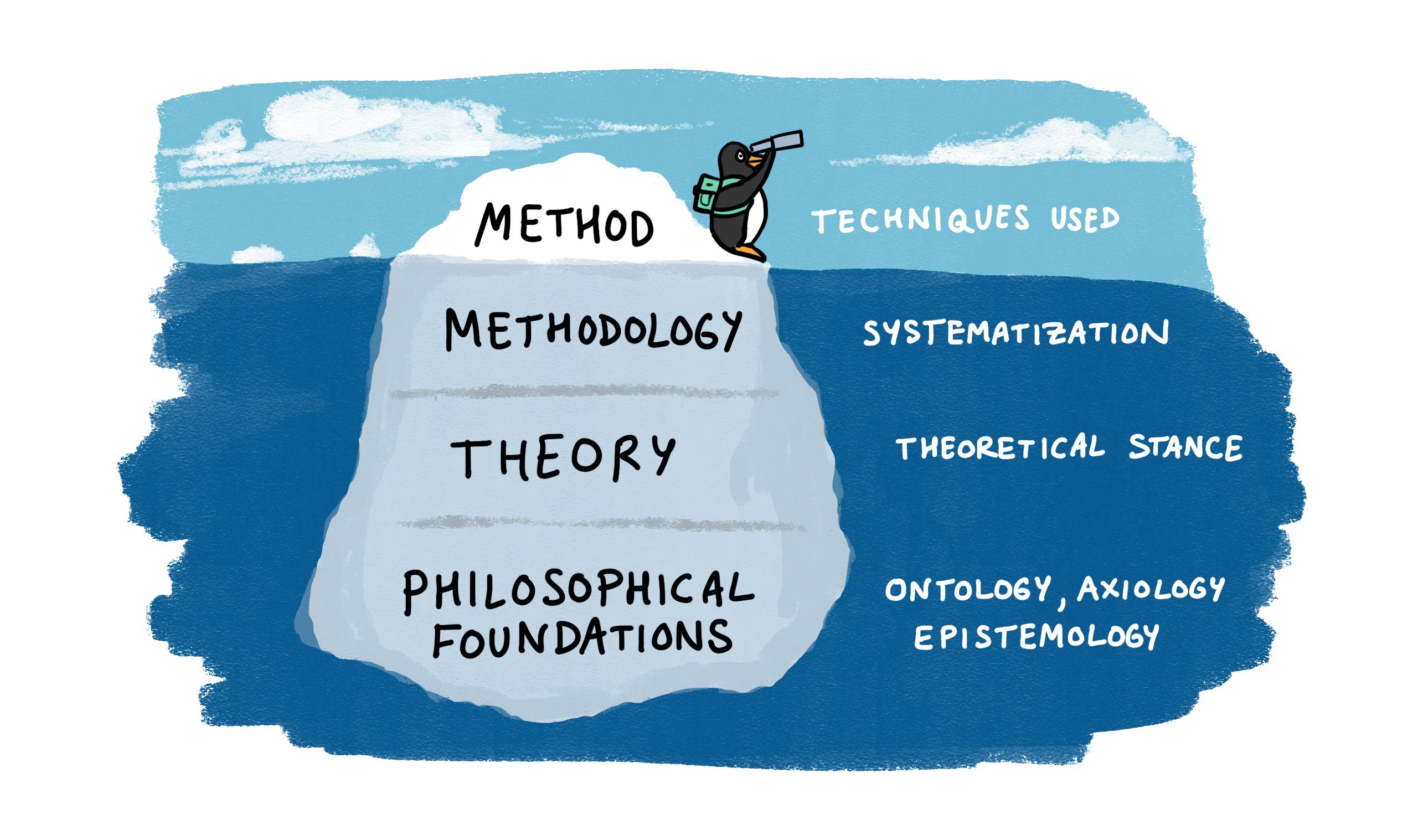Conceptualizing Research Methods
What is a ‘research method’? The simple answer is to say that it is how someone did a particular piece of research, investigated a topic or attempted to answer a question. This could describe a specific part of the process or it can relate to the process as a whole. Research methods can vary greatly but they all attempt to gather information in order to provide answers that are systematic and reliable.
that are systematic and reliable.
Research methods are important because they provide the underlying validity for what we do. This is why it is important to critically engage with methodology.
Most of the time, when people talk about ‘research methods’ they refer to aspects like:
● An approach or technique for conducting research
● How a study is completed
● How data was collected and analysed
● How findings were reported
Choosing a method is just the tip of the iceberg when it comes to the deeper justification for ways of doing research. At a more abstract level, these elements are
supporting the wider claims made by a piece of research. This includes elements like:
● Testing a hypothesis
● Supporting a claim to new knowledge
● Being reproducible by others
To understand this at a more reflective level, you have to think about methodology. It is important to ground your methodology on a firm basis, and this section will
help you understand how your methodology relates to broader beliefs about knowledge. However, it does require a dive into philosophy so if you are just interested in looking at specific methods you may want to skip to a later section. Methodology is the systematisation, analysis and comparison of different methods.
Methods can be closely associated with particular worldviews or ideologies.
There are necessarily philosophical and theoretical aspects to this, and this can be intimidating at times, but it’s important to critically engage with these questions to improve the quality of research.


